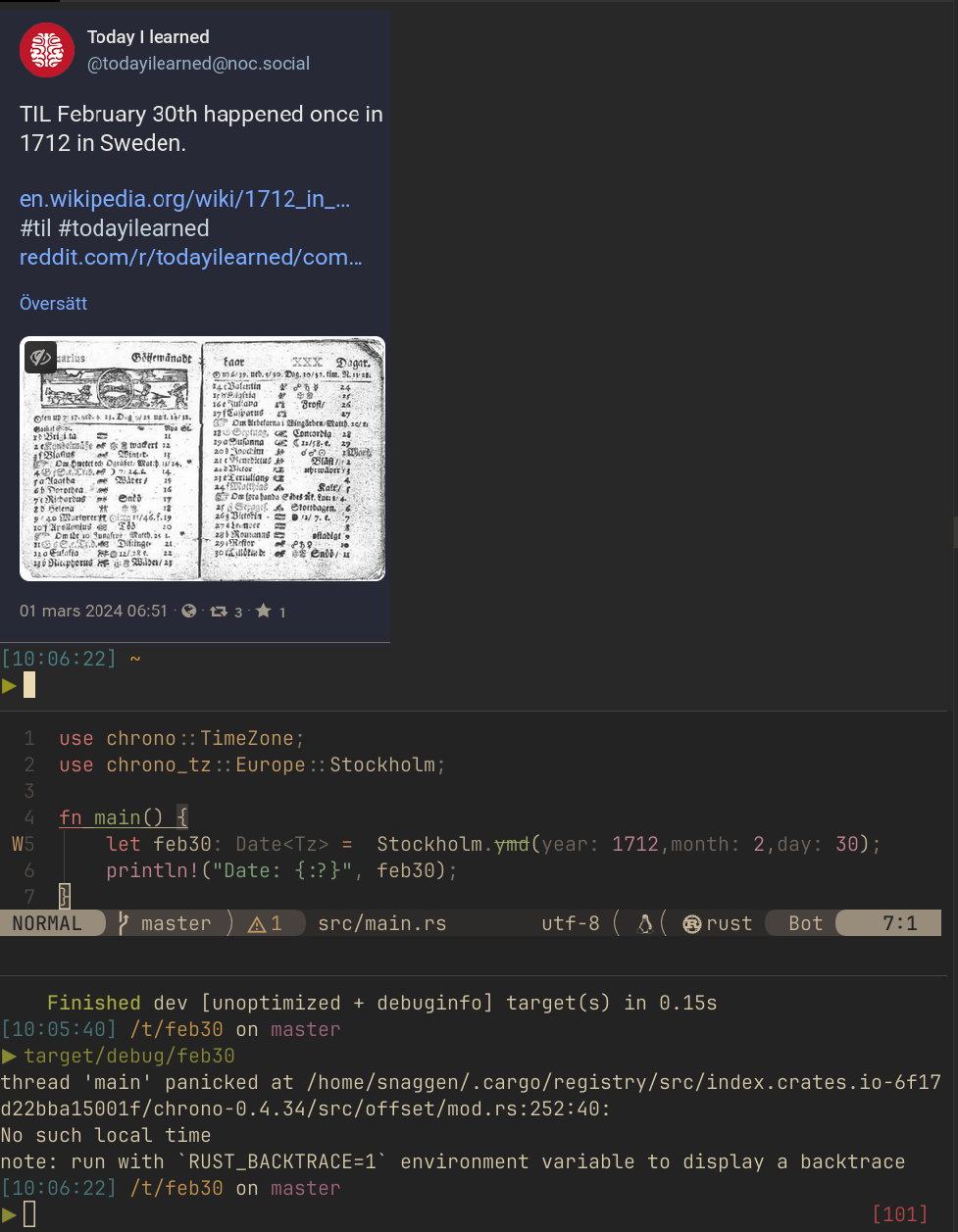this post was submitted on 01 Mar 2024
137 points (98.6% liked)
Rust
5966 readers
24 users here now
Welcome to the Rust community! This is a place to discuss about the Rust programming language.
Wormhole
Credits
- The icon is a modified version of the official rust logo (changing the colors to a gradient and black background)
founded 1 year ago
MODERATORS
you are viewing a single comment's thread
view the rest of the comments
view the rest of the comments

Yes, that's one actual problem that is not covered by everyday speech as it is in use today.
I think it would be very quickly solved by language evolution. E.g. we'd switch to something like "the evening on the 20th" or "the third day next week" (weeks are defined by the presence of weekends, just like they are today). But nonetheless it's a valid argument.
Edit: even today weekends cover multiple days. However you define a weekend now can probably be used to define a day in the global UTC system.